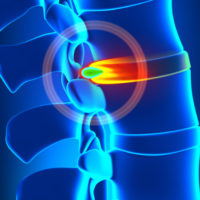
Degenerative Discs: Understanding, Causes, and Non-Surgical Treatment Options
What are Degenerative Discs?
Degenerative disc disease (DDD) is a common condition affecting the intervertebral discs in the spine. These discs act as cushions between the vertebrae, providing flexibility and shock absorption to the spine. Over time, due to wear and tear or age-related changes, these discs may begin to deteriorate, leading to degeneration. Contrary to the name, degenerative disc disease is not technically a disease but a natural part of the aging process, which can cause pain and discomfort in some individuals.
Causes of Degenerative Discs:
Several factors contribute to the development of degenerative discs, including:
- Aging: As we age, the water content in the intervertebral discs decreases, making them less flexible and more prone to damage.
- Repetitive Stress: Activities or occupations that involve repetitive movements or heavy lifting can accelerate disc degeneration.
- Poor Posture: Maintaining improper posture over extended periods puts excessive pressure on the discs, contributing to their degeneration.
- Genetics: Some individuals may have a genetic predisposition to disc degeneration.
- Smoking: Smoking reduces blood flow to the discs, impairing their ability to heal and maintain their health.
How do we Treat Degenerative Discs?
At Dr. Edward Rubin MD’s Pain Management Clinic, we believe in offering conservative and minimally invasive treatment options to manage degenerative discs effectively. Our goal is to alleviate pain, improve function, and enhance your quality of life without resorting to surgical interventions.
Conservative Treatment Options:
- Physical Therapy: Our expert physical therapists will design personalized exercise programs to strengthen the supporting muscles, improve flexibility, and promote better posture.
- Pain Medications: We may prescribe pain-relieving medications, such as nonsteroidal anti-inflammatory drugs (NSAIDs), muscle relaxants, or analgesics, to manage pain and inflammation.
- Lifestyle Modifications: Our team will provide guidance on maintaining a healthy lifestyle, including weight management, ergonomic practices, and advice on avoiding activities that worsen symptoms.
- Heat and Cold Therapy: The application of heat or cold packs can help reduce pain and inflammation in the affected area.
- Bracing: In some cases, wearing a brace may help stabilize the spine and provide relief.
Minimally Invasive Procedures:
- Epidural Steroid Injections: These injections deliver corticosteroids directly into the epidural space around the affected nerve roots, reducing inflammation and providing pain relief.
- Facet Joint Injections: These injections target the small joints in the spine, called facet joints, to alleviate pain and improve mobility.
- Radiofrequency Ablation: This procedure uses heat generated by radiofrequency energy to disrupt pain signals from the affected nerves, providing longer-term pain relief.
- Intradiscal Procedures: Minimally invasive techniques, such as intradiscal steroid injections or biacuplasty, target the damaged disc directly to reduce inflammation and pain. (ViaDisc Hyperlink)
- Spinal Cord Stimulation – Spinal cord stimulation is a medical procedure used to alleviate chronic pain. It involves placing a small device, similar to a pacemaker, near the spinal cord. This device sends mild electrical impulses to interfere with pain signals, helping individuals feel less pain and experience better quality of life.
If you or a loved one are experiencing symptoms of degenerative disc disease, we encourage you to take the first step towards pain relief and improved quality of life. Dr. Edward Rubin and his team are committed to providing personalized care for individuals with spine-related conditions. Schedule an appointment today so Dr. Edward Rubin can create a personal and minimally invasive treatment plan, to help you recover and get back to doing what you love.
